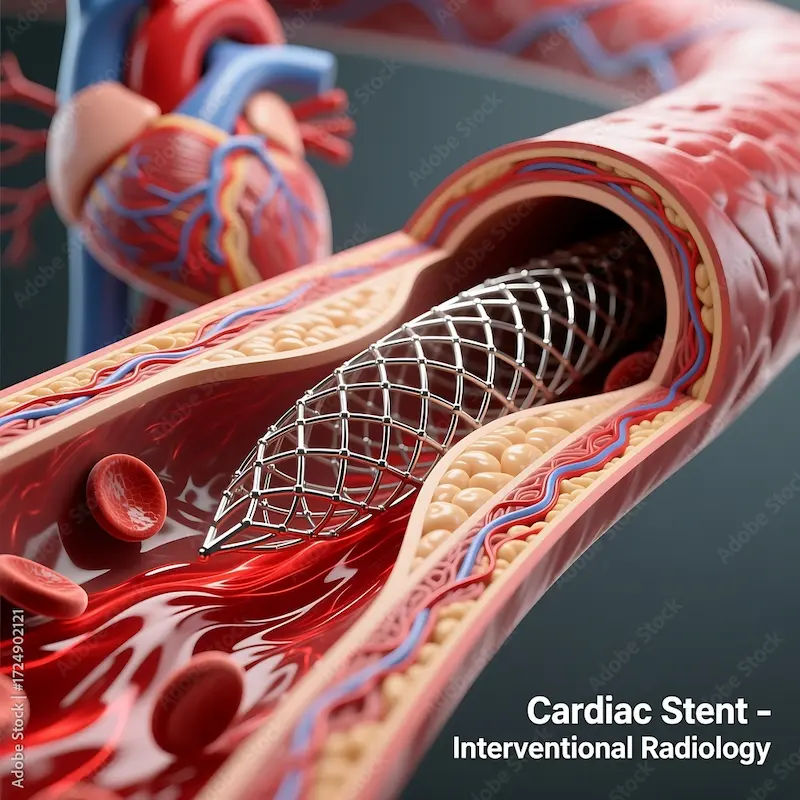- male
- 45 Years
- 22/01/2025
I'm really concerned about some symptoms I've been experiencing. I started taking Eliwel 10mg for nerve pain about 20 days ago, but suddenly I got rapid heartbeats and chest pain on October 1st with pain intensity around 710. When I went to the doctor, my heartbeat was going from 60s to 110. The doctor gave me Nebicard 5mg and suggested getting an ECG and echo. The ECG was abnormal but the echo was normal, and the doc said not to worry. But the chest pain lingered for 34 days, and I also had some shortness of breath. I've stopped taking Eliwel on my own, which helped a bit, but I still have some chest pain, maybe around a 410. Yesterday I saw a cardiologist who did a TMT test; that was normal too, but the ECG was still abnormal. I've attached my reports. Is there anything here I should be worried about?
Answered by 1 Apollo Doctors
Based on your symptoms and the abnormal ECG findings, it seems like you may have experienced some adverse effects from the Eliwel (Amitriptyline) medication. The rapid heart beat and chest pain could be related to this. Nebicard (Nebivolol) 5mg was prescribed to help with the rapid heart beat. Since you have already discontinued Eliwel and your symptoms have improved but not completely resolved, I would recommend discussing with your doctor about alternative medications for nerve pain. For your ongoing chest pain, you can consider taking a pain reliever like Paracetamol 500mg as needed for pain relief. It is important to follow up with your Cardiologist for further evaluation and management of the abnormal ECG findings. If the chest pain persists or worsens, do not hesitate to seek medical attention promptly.
Dr. Dhankecha Suggests...
Consult a Cardiologist
Answered 04/07/2025
1
0

More Cardiology Health Queries
View allMy dad is 57 and has severe mitral regurgitation with an LVEF of 30. Doctors recommended a MitraClip surgery. Where in India can we get this done? We're based in Bangalore but open to traveling for the best care.
For MitraClip surgery in India for a patient with severe mitral regurgitation and LVEF of 30, you can consider Kauvery Hospital which offers this procedure in several locations including Chennai, Bangalore, and other cities. It's important to consult with multiple specialists to determine if MitraClip is the most suitable option and to get personalized advice for your father's specific condition
Answered by 1 Apollo Doctors
I've been dealing with tinnitus and anxiety for about six months now, and this morning when I blew my nose, I noticed these random blood stains in my mucus, and it was really frothy. I've also been feeling this weird gurgling sensation in my chest, and occasionally, there's a sharp pain in my left shoulder, but it doesn't last more than a second. My blood pressure was 104 over 70 this morning. I don't have diabetes, but my cholesterol levels are off; it's at 228, with HDL at 49 and LDL at 150, and my triglycerides are at 142. I'm getting worried... is this something serious, or is my heart okay?
It is important to address these symptoms promptly. The presence of blood in your mucus, along with chest discomfort and shoulder pain, could indicate potential issues with your heart or respiratory system. Given your cholesterol levels, there may be an increased risk of cardiovascular problems. I recommend seeking immediate medical attention. In the meantime, you can take Aspirin 81mg for potential heart-related symptoms. Please consult a healthcare professional for a thorough evaluation and appropriate management.
Answered by 1 Apollo Doctors
I've been experiencing this sharp pain and tightness in my chest, and it sometimes feels more like stabbing. It's not constant - sometimes it's there, sometimes not. It's weird because I also feel it around my back. On top of that, I'm always tired and feel drowsy. Should I be concerned about this?
do Ecg , troponin test and consult physician
Answered by 1 Apollo Doctors
Disclaimer: Answers on Apollo 247 are not intended to replace your doctor advice. Always seek help of a professional doctor in case of an medical emergency or ailment.




